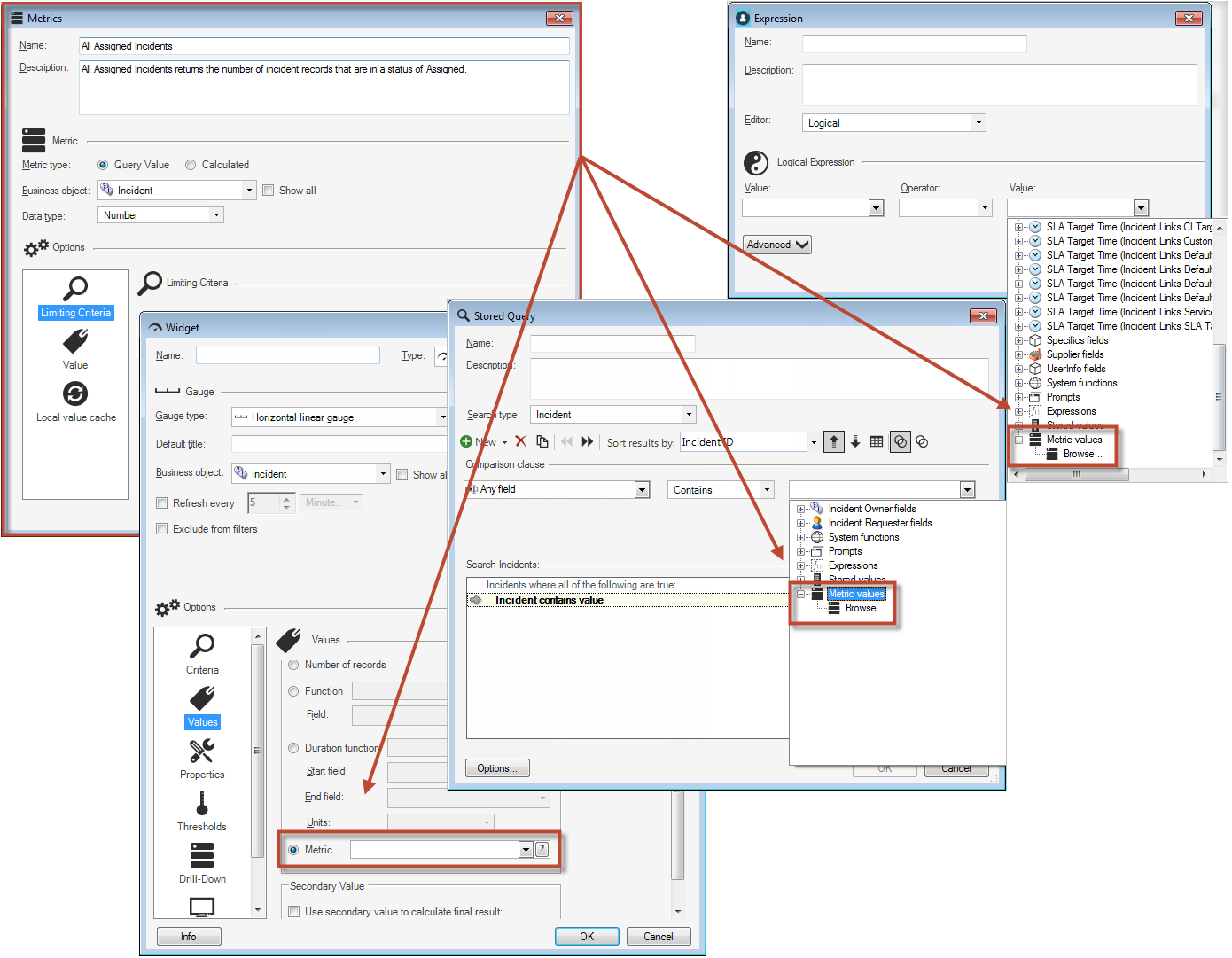About Metrics
Use a Metric to measure, monitor, and predict:
- Input: Work coming into the service desk (example: Logged Incidents)
- Output: Work being completed by the service desk (example: Resolved Incidents).
- Status: Snapshot of data at a specific point in time (example: Open Incidents).
- Timeliness: In regard to SLA agreements of resolve/respond (example: Late Incidents).
- Thresholds: Work exceeding an expectation (example: More than 30 Incidents are open).
- Satisfaction: Level of service appreciation (example: Customer satisfaction rate—average survey scores or % of surveys where survey scores are above 75%).
- Success: Value and Outcomes (example: First Call Resolution (FCR) rate—% of Incidents closed on first call); SLA success rate (% of Incidents where SLA was met).
- Trends: Compare points in time (example: Increasing satisfaction).
- Cause: What caused the work (example: Printer Incidents).
- Individual and Team performance: Who is completing the work and how efficient they are (example: Incidents per Team).
- Averages: Mean Time to Resolve (MTTR), Mean Time Between Failures (MTBF) for CIs, average response time, etc.
A Metric value can be a:
- Query Value:
Based on a Search Query (ex: Open Incidents, SLAs warnings and breaches, records with unread Journals, etc.). Queries can contain simple calculation functions (ex: Averages, such as Incident MTTR).
- Calculation:
Calculated measurement that involves other values (can be other Metrics) and math operator (example: FCR rate).
In CSM, a Metric can be used in:
- Expressions:
To conditionally control appearance and behaviors (example: Change a Widget's border color to red if the FCR rate is less than 75 percent).
- Gauge Widgets:
To monitor service desk performance on Dashboards (example: Number of records, MTTR, FCR, success, satisfaction).
- Queries:
To find/filter data (example: Find all surveys where the score is below the Customer satisfaction rate).
